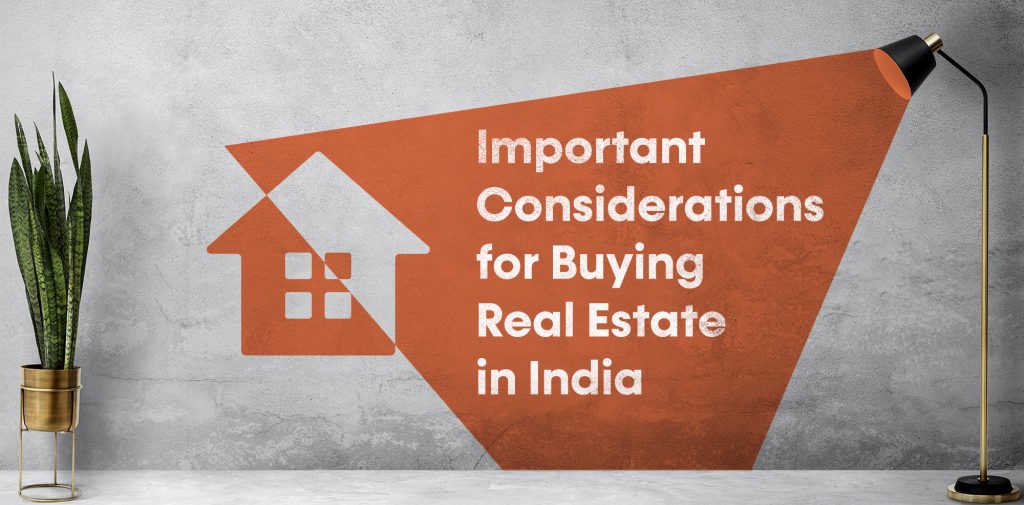Getting a car loan is frequently necessary when buying a dream vehicle. A car loan is a crucial financial tool that increases the likelihood of owning an automobile. Nevertheless, in the midst of the thrill of vehicle ownership, it’s important to understand the specifics of the auto loan contract, such as the processing costs. These charges shouldn’t be disregarded as they have a big influence on the total cost of your loan.
On the other hand purchasing a home of one’s own is a goal shared by many. However, in the past, a home loan was a need for purchasing a property. Although applying for a home loan can seem like a difficult endeavour, anyone can grasp the procedure and associated costs with minimal assistance and a few easy steps.
Because the procedure of collecting fees for a mortgage differs from that of other loans, such as a personal loan or auto loan, many consumers become perplexed by the many expenses associated with applying for a home loan.
In this article, we will look at vehicle loan processing fees, describing what they are, how they are charged, how they affect your loan, and how to reduce them so you can make informed financial decisions.
What are processing fees for car loans?
An upfront fee assessed by the lender to defray the costs of processing an application for a car loan is known as the processing fee. It covers the price of processing the loan request, checking credit, and confirming documentation. This fee can affect the overall cost of your auto loan and differs between lenders.
Getting a Car Loan: The True Price
All of India’s main banks provide automobile loans, which have lower interest rates than unsecured loans like personal loans because the loan is secured by the car. Nevertheless, there are other expenses, even though they are minor, that raise the total cost.
Document fees, processing fees, GST on processing fees, and other expenses are all incurred. To give you an idea of how much you’ll spend, here’s a list of some of India’s biggest banks’ car loan interest rates and processing fees:
| Name of the Bank | Minimum Interest Rate (p.a.) | Processing Fee |
| State Bank of India | 7.70% onwards | 0.40% of Loan Amount (Max. ₹7500) |
| Axis Bank | 8.70% onwards | Min. ₹3500, Max. ₹5500 |
| Bank of Baroda | 7.25% onwards | 0.25% of Loan Amount (Max. ₹10,000) |
| HDFC Bank | 7.31% onwards | 1% of Loan Amount (Max. ₹10,000) |
| Punjab National Bank | 7.55% onwards | 0.35% of Loan Amount (Max. ₹15,000) |
| Bank of India | 7.45% onwards | 0.25% of Loan Amount (Max. ₹5,000) |
| ICICI Bank | 7.90% onwards | Min. ₹3500, Max. ₹8500 |
How Are Processing Fees for Car Loans Determined?
The processing costs for auto loans can be computed in a number of ways, and lenders have varied methods for imposing them. The following are some methods for figuring out processing fees for auto loans:
One-time Charge
Under this arrangement, the lender assesses a set processing fee to each applicant for a vehicle loan. The same fixed processing charge must be paid by each borrower, regardless of loan amount or other variables.
As a proportion of the overall loan amount, the processing charge is determined by certain lenders. Because the processing cost increases in direct proportion to the loan amount, borrowers will pay a higher processing fee on bigger loans than on smaller loans.
Percentage of Loan Amount with Cap:
The processing charge is computed as a percentage of the loan amount, much like the technique described above. The processing charge is subject to a maximum limitation or limit, nevertheless. Regardless of how much the loan is for, the processing charge does not go up when it hits the cap.
Flat Fee with Waiver:
The lender charges a flat processing fee to all applicants. Nonetheless, the lender has the option to waive the processing cost during promotional times or under particular circumstances, in which case borrowers would not be responsible for any processing fees.
How Much More Do You Spend When Buying a Car with a Loan?
Make sure you have the down payment in place before you even apply for a car loan. The majority of banks lend you between 80% and 90% of the car’s on-road pricing. This implies that when you buy the car, you have to put aside 10% to 20% of your own money. Therefore, a down payment of between Rs. 1.2 lakh and Rs. 2.4 lakh will be required if you take out a loan for a car that costs Rs. 12 lakh on the road.
Right, so as we mentioned before, the main expense you have above and beyond the automobile’s purchase price is the interest on your car loan. The combination of loan amount, interest rate, and loan tenure will determine the total amount of interest you pay. These days, the majority of banks provide auto loans with a maximum 5-year term; nevertheless, some lenders allow for a 7-year term.
Let’s use the example of an automobile with an on-road pricing of Rs. 12 lakh to illustrate how much extra you ultimately pay. You choose to put down 10% and use an 8% auto loan to cover the remaining balance. Thus, you will make an initial payment of Rs. 1.2 lakh and repay the loan balance of Rs. 10.8 lakh.
| Loan Amount | ₹10.2 lakh | ₹10.2 lakh |
| Interest Rate | 8% p.a. | 8% p.a. |
| Loan Tenure | 5 years | 7 years |
| Equated Monthly Payments (EMI) | ₹20,682 | ₹15,898 |
| Total Interest Payout | ₹2.20 lakh | ₹3.15 lakh |
| Loan Processing Fees | ₹5000 | ₹5000 |
| CIBIL Charges | ₹50 | ₹50 |
| GST (18%) | ₹999 | ₹999 |
| Documentation Charges | ₹500 | ₹500 |
| Total Charges for Car Loan (Interest + Other Charges + GST) | ₹2.27 lakh | ₹3.22 lakh |
You can see that a car loan is fairly costly over the course of the five or seven-year loan term. You wind up paying an additional 20% to 30% of the vehicle’s worth in interest and other costs.
Observe that although the individual EMI payments appear reasonable, choosing a longer term significantly raises your interest costs. Moreover, you do not receive any tax advantages when repaying a car loan, in contrast to home or education loan repayments. Let’s now explore our options for not getting a car loan.
Car Loan Processing Fees’ Effect on Your Loan
It’s critical to comprehend how vehicle loan processing costs affect your loan. These fees impact your loan’s effective interest rate and raise the original cost of borrowing. A greater processing charge may result in higher monthly instalment payments or an increase in the total amount of interest paid over the course of the loan. Knowing these consequences enables you to select a loan more wisely from a financial standpoint.
Reducing the Processing Fees for Auto Loans
During the course of the loan, reducing the processing fees for auto loans might result in substantial savings. Here are some pointers to help you do this:
Compare lenders: Refrain from choosing the first one you find. To identify the most affordable rates, compare the processing costs that various lenders are offering.
Talk to the Lender: Don’t be afraid to discuss possible discounts or reduced processing costs with the lender. Some lenders could be willing to make accommodations in order to attract new business or retain current clients.
Look for Waivers: Find out from the lender whether there are any exclusive reductions or waivers of processing costs. Certain lenders might provide seasonal discounts or promotions.
Examine the fine print: Go over the terms of the loan carefully, paying particular attention to the processing charge section. You’ll steer clear of any unpleasant shocks or additional costs in this approach.
Home Loan Fees
Home loan fees, sometimes referred to as closing costs, are assessed for a variety of reasons by lenders and other parties involved in the loan process. These reasons include loan commencement, appraisal, title insurance and pursuit, prepaid interest, loan discount points, PMI premiums, recording fees, and homeowner association fees.
These fees cover loan processing, property value assurance, title insurance protection, and other services. Depending on the type of loan, the lender, and the area, they may vary. Borrowers should therefore compare offers from different lenders to find the best terms and do extensive study to fully understand the costs of their loans.
Choose the type of house loan you want before applying for one. Depending on the kind of property, yes. Some loans include building and plot loans, remodelling and repair loans, and loans for the purchase of new or pre-owned homes (which are typically taken out by home buyers).
Therefore, the costs associated with home loans differ based on the loan.
What is meant by “home loan processing fee”
For house loans, lenders may charge one-time fees to cover the costs of processing your application and other administrative costs. The extent of these costs can vary based on the lender, type of loan, and your situation, but they usually range from 0.25% to 2% of the loan amount. Consider it the cost of hiring a chef to create your ideal home’s financial recipe.
The majority of lenders impose processing fees. Basically, it’s used to process your mortgage.
The processing charge is different for each financial institution. Some impose this fee on a set duration, but others charge it as a percentage of the loan amount, such as 0.5% or 1%.
For example, the processing charge for an SBI Home Loan is 0.4% of the loan amount (according to publicly available internet information). In a similar vein, HDFC Home Loan levies a processing fee that starts at Rs 3,000 and goes up to Rs 10,000, or 0.5% of the loan amount.
Standard charges for all home loans
Several basic fees that apply to home loans include the following:
Home Loan Down Payment
It’s the first money you take out of your pocket. It is important to understand that a lender will not cover the whole worth of the property when you apply for a home loan. For instance, if your home is valued at Rs 80 lakh, you would be eligible for a loan of between Rs 60 and Rs 70 lakh. The loan-to-value (LTV) ratio is the reason behind this.
All banks and non-bank financial companies (NBFCs) follow the LTV ratios that are set by the RBI. You can verify the same with banks and NBFCs. A house loan EMI calculator can also be used to examine your home loan EMIs.
LTVs Regarding Home Loans
- The LTV for home loans up to Rs 30 lakh may reach 90%, per the RBI’s circular.
- This suggests that if you are a borrower purchasing a home up to Rs 30 lakh, you will need to put down 10% of the total cost.
- Similarly, the LTV for home loans ranging from Rs 30 lakh to Rs 75 lakh is up to 80%. It denotes a 20% down payment for you.
- And 75% of loans exceeding Rs 75 lakh are subject to this LTV.
Keep in mind that while the RBI sets LTV restrictions, other criteria determine the maximum loan amount that is eligible. These include salary, credit score, age, type of job, account for a single or joint loan, extra income, and other debts that are now outstanding. The down payment is also affected.
Home Loan Documentation Fees
A house loan also has additional fees. These consist of switching costs (incurred when transferring a loan to a different lender), legal fees, administrative fees, and late payment penalties.
In the loan application, most lenders include a list of costs that the borrower/homebuyer is responsible for paying. In the event that the list of costs is not available, it is preferable to inquire with the lender.
However, the following are some typical costs connected to home loans in India:
Charge for Processing
This cost is imposed once by the bank or other financial organisation to complete the application for a house loan. It is often computed as a percentage, typically between 0.25% and 1%, of the loan amount.
Cost of Legal and Technical Verification
Verification of technical and legal property documents is included in this fee. It varies based on the location and intricacy of the property.
Assessment Charge
This charge is made in order to value the property and determine its market value. It differs from bank to bank and is frequently based on the valuation of the property.
Fee for Document Verification
The cost of verifying the legitimacy of the borrower’s supporting documents, including evidence of income, identification, and address, is covered by this fee.
Fees for Stamp Duty and Document Registration
These are state-specific government fees assessed upon the registration of real estate documents.
Fees for prepayment or foreclosure
Certain banks or financial institutions may charge a fee if the borrower tries to prepay or foreclose on the house loan before the end of the loan term. Depending on the bank and the length of the loan, the expenses could change.
In a similar vein, annual service fees and property inspection fees are also charged by banks and other lenders. Although these fees are non-refundable, they are negotiable with the lenders. Additionally, you proceed via one of the loan representatives. After that, you would also have to pay for them.
How to Read the Fine Print and Spot Hidden Charges
Let us now provide you with some useful advice on how to handle processing fees and charges related to house loans and spot any hidden costs:
Examine the Loan Agreement closely: Pay close attention to any mortgage fees associated with house loans that are indicated in the footnotes or hidden areas of the fine print. Never be afraid to ask questions about any unclear terms.
Seek Clarity: Asking the lender to provide a detailed explanation of any fees is not a bad idea. Make sure you know why you are paying for what you are.
Examine Offers: Investigate and contrast offers made by various lenders. Seek out reasonable prices and clear pricing schedules. Recall that sharing is caring!
Also Read – Car First Or House: Which Is The Better Option?
In summary
Simply because you can save more money if you choose to save instead of taking out a car loan, the second alternative is unquestionably preferable. While obtaining a car loan may allow you to drive the vehicle right away, you will ultimately spend an additional 20% to 30% over the list price, and the automobile will remain your property until the debt is repaid. On the other hand, if you use your savings to purchase the car, you become the owner of the vehicle right away and pay off all of your debts at the same time. If you have any queries about rental you can also visit Lets Rentz for real estate rental solutions.
Despite the possibility of a longer wait, it is unquestionably preferable to use your money to purchase a car rather than applying for a car loan in light of these advantages. Since the majority of us are prepared to wait for a sale in order to receive a discount on other significant purchases, why not do the same when purchasing a car? Having a home entails a number of costs, some of which are disclosed up front and others which are buried in mortgage loan terms. Gaining a thorough comprehension of all these fees—from the registered mortgage charge to the house loan application fee—guarantees a less stressful and more educated home loan process. Now that you have this information, you may more easily understand the associated costs and turn your dream of becoming a homeowner into a less expensive reality.



